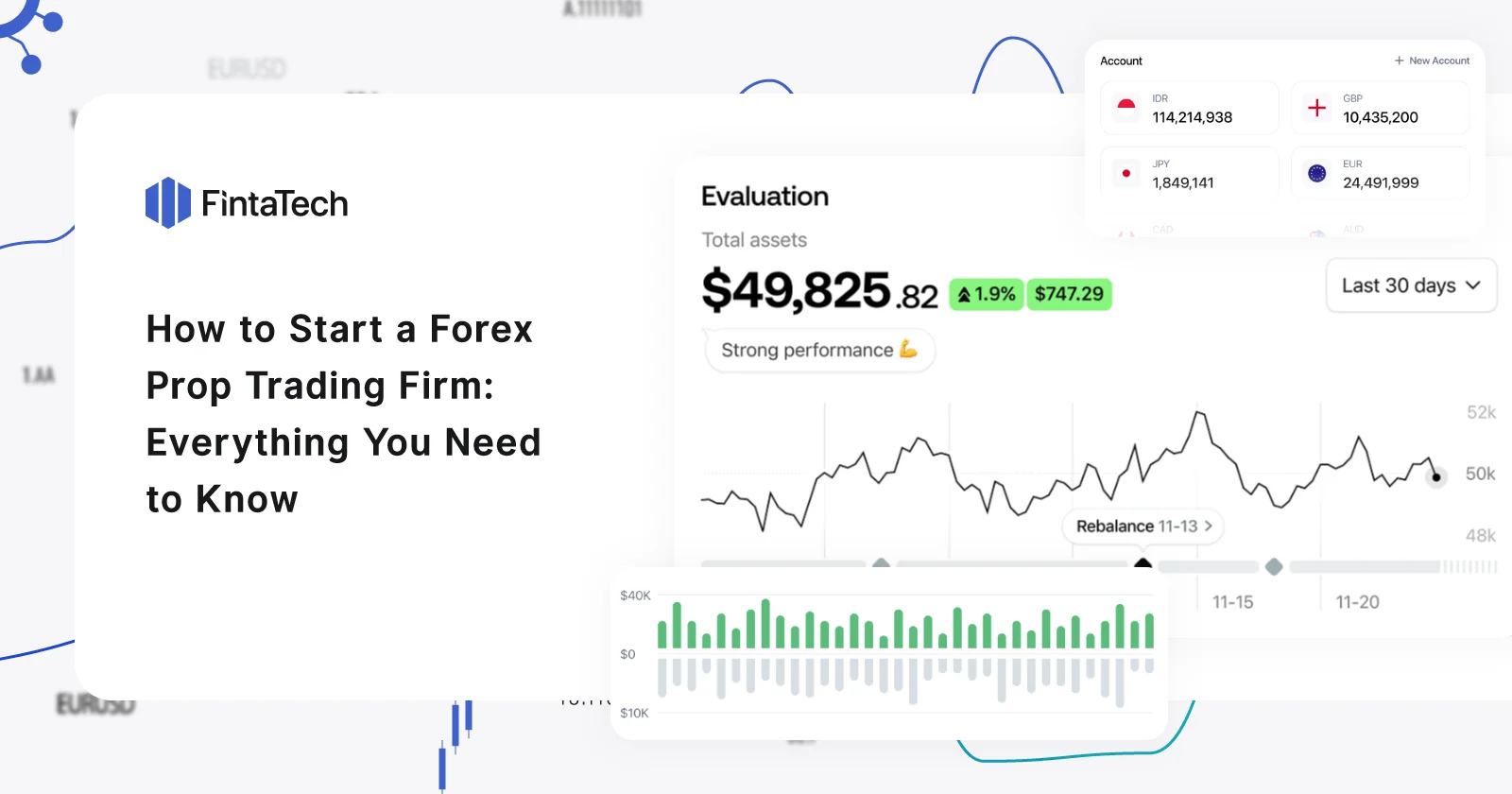The prop trading world of Forex is a unique opportunity that provides investors with the leverage to their capital. They can assist good traders in turning a profit by use of their talent in the markets. To open up a firm dedicated to Forex proprietary (prop) trading, you have to have the business acumen in financial markets, a well-structured business model, and regulatory compliance. In this guide, we will be discussing all the things you need to know in order to start up a successful Forex prop trading firm.
Understanding Prop Trading
A proprietary trading model makes the process of trading instruments, whether currency or another kind, much less risky for the ones engaging in the trade. Firms profit by using experienced traders to conduct trades on behalf of the company. In return, the firm offers the trader access to a large amount of capital and takes a share of the profits through a performance-based compensation package structure. Some key aspects of the model:- Firm Capital: It is not a hedge fund but rather a proprietary trading shop that uses their own capital, which limits their risk.
- Trader Payout: Traders receive a share of the profits they make as a percentage, thereby being keen on seeing the firm making a profit.
- Risk Management: Strict risk management policies are set to guard capital from too much loss.
2. Key Steps to Launch a Proprietary Trading Forex Firm
a) Create a Sound Business Plan The business plan should contain the objectives of your firm, trading strategy, financial projections, and risk management policies. Of course, the key components of the plan are:- Target Market: Decide whether you want to target retail traders, institutional traders, or a mix of the two.
- Revenue Sharing: Create a fair, competitive structure of profit distribution to drive the best traders.
- Risk Management: Provide strict guidelines for maximum allowable risk, stop-loss levels, and limits on drawdowns.
- Factors to consider
- Legal Structure: Choose whether your business is going to be an LLC or a corporation.
- Licensing: You may require certain proprietary trading licenses in certain jurisdictions.
- Anti-Money Laundering (AML) and KYC Compliance: Ensure your business is in compliance with both anti-money laundering and know-your-customer regulations.
- Liquidity Providers: Our partnership with leading global liquidity providers ensures easy order execution.
- Technology Infrastructure: Solid infrastructure with low latency and high-frequency trading strategies.
- Tools for monitoring risk: Investments in tools that will allow for real-time position tracking, margin use, and risk exposure.
- Home Traders: Professional full-time traders on either your work premise or remotely.
- International Trader Programs: Take your business global — welcome international traders to your firm.
- Provide access to substantial capital.
- We proposed a profit-sharing scheme that was structured fairly.
- Build a culture focused on trader development and performance coaching.
- Position Sizing: Establish rules to ensure exposure is limited per trade.
- Daily Loss Limits: Limiting losses in order to prevent major drawdowns.
- Leverage monitoring: Putting strictly defined restrictions on leverage in place to manage exposure from margins.
- Online Presence: Professional website presenting what your company has to offer, along with trading philosophy and the traders’ recruitment process.
- Partnerships: Partner with educational platforms, trading influencers, and financial media to get in touch with aspiring traders.
- Social Proof: Share case studies, success stories, and performance statistics to create interest.

Photo by Jakub Żerdzicki on Unsplash
3. Financial Aspects
a) Capital Requirements Setting up a prop trading firm normally requires a good deal of upfront capital. You would usually need to:- Covering operational costs: Office space, technology infrastructure, and licensing fees.
- Capital Provision: Determine the amount of capital that you can provide to each trader based on their level of experience and knowledge.
b) Gross Profit Now, your traders have to make the profits and the risk management practices they use. Make sure that realistic targets are set and monitor the firm’s profitability over time.
c) Sources of investment If you do not have enough capital, think about raising that capital from partnerships, investors, or venture capital.
Common Problems and Solutions
Mobilize Highly Talented Traders: To identify skillful traders can be hard. Have strict vetting and extended competitive incentives.
Managing Risk: Prop trading firms face significant risks due to the nature of their business, so it’s essential to prioritize risk management. This requires implementing sophisticated tools and systems that can effectively monitor and control risk exposure in real-time. A robust risk management strategy is crucial to protect the firm’s capital and ensure long-term profitability.
Regulatory Compliance: Stay in touch with the evolving regulations so as not to fall out of compliance and receive fines.






Twitter
Linkedin
Facebook